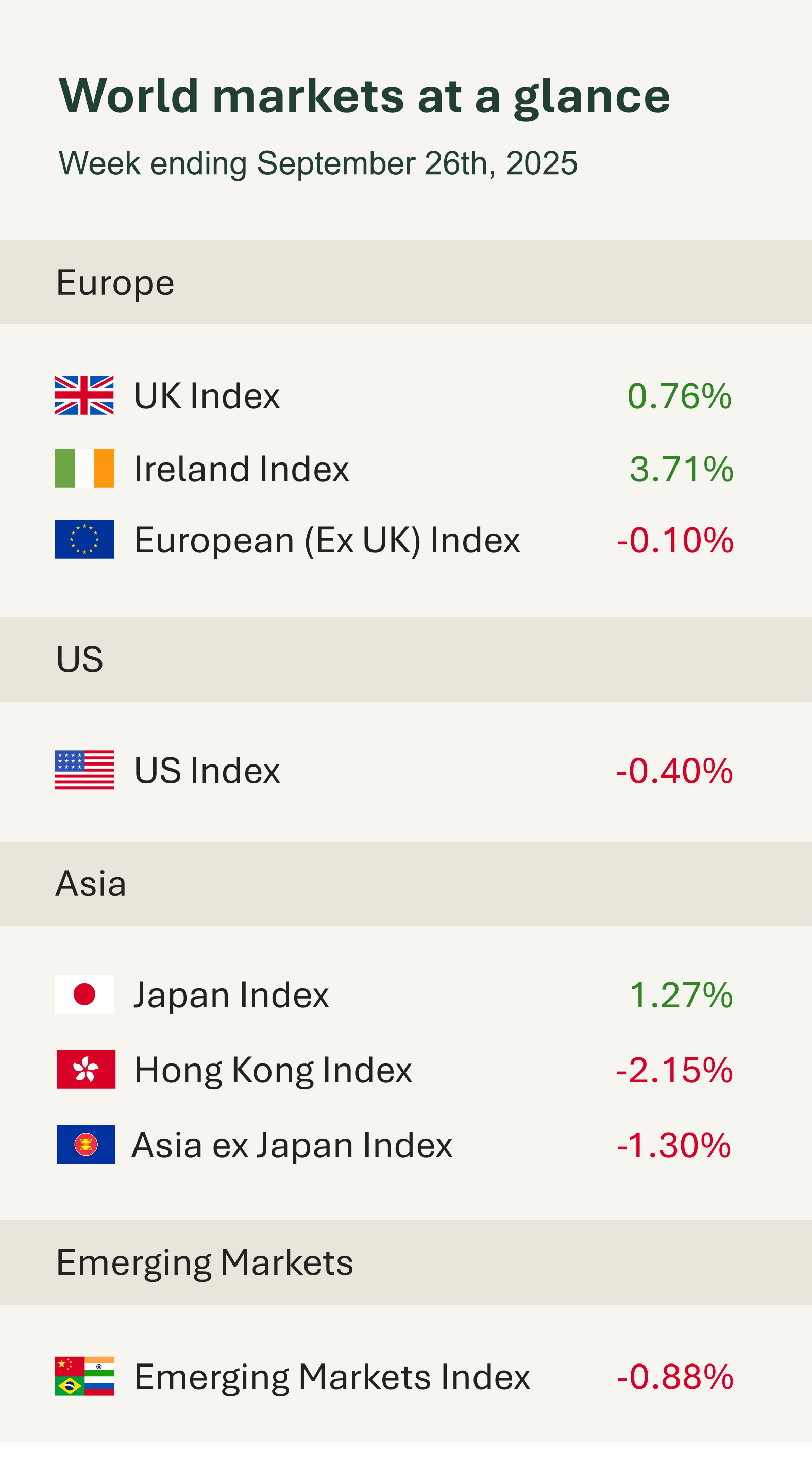Global markets were mixed last week, with U.S. stocks pulling back as hawkish central bank commentary tempered investor optimism following recent gains. Major U.S. indices ended the week slightly lower, reflecting cautious sentiment after Federal Reserve officials dampened expectations for further rate cuts.
UK and European markets remained resilient despite fresh U.S. tariffs announced on Thursday. President Donald Trump unveiled a new round of import duties, including 100% tariffs on branded or patented drugs unless the manufacturer has already begun building a U.S. production facility. Additional tariffs targeted furniture, kitchen cabinets, and heavy-duty trucks.
Pharmaceutical stocks broadly shrugged off the news. Many major drugmakers are well-positioned, with existing U.S. operations or substantial investment commitments already in place. While smaller firms may face greater pressure, the announcement was largely priced in following months of signalling from the White House.
Although Trump has warned that tariffs could eventually rise as high as 250%, UK firms such as AstraZeneca appear better placed, given their existing U.S. investments and indications that the UK may receive preferential treatment in future trade negotiations.
Beyond tariffs, market attention shifted back to the health of the U.S. economy. Durable goods orders rose by 2.9% in August, sharply reversing July’s decline and beating expectations for a fall. While encouraging, part of the increase likely reflects higher prices due to tariff-related input cost pressures, rather than stronger volumes.
Major global indices posted decent gains on Friday, rebounding after the recent sell-off, as the Federal Reserve’s preferred inflation measure came in as expected. The core personal consumption expenditures (PCE) index rose 2.9% year-on-year in August, unchanged from July and in line with forecasts. On a monthly basis, core PCE rose 0.2%, while headline PCE climbed 0.3% from July and 2.7% from a year earlier. These steady but elevated readings reassured markets, but underscore the challenge facing the Federal Reserve, with inflation remaining above target for nearly five years. Markets remain divided over the Fed’s next steps.
Chinese onshore equities ended the week higher, supported by progress among domestic AI startups and Beijing’s “anti-involution” campaign aimed at curbing excessive price competition. These tailwinds have buoyed sentiment despite ongoing concerns around slowing growth and deflationary pressures.


